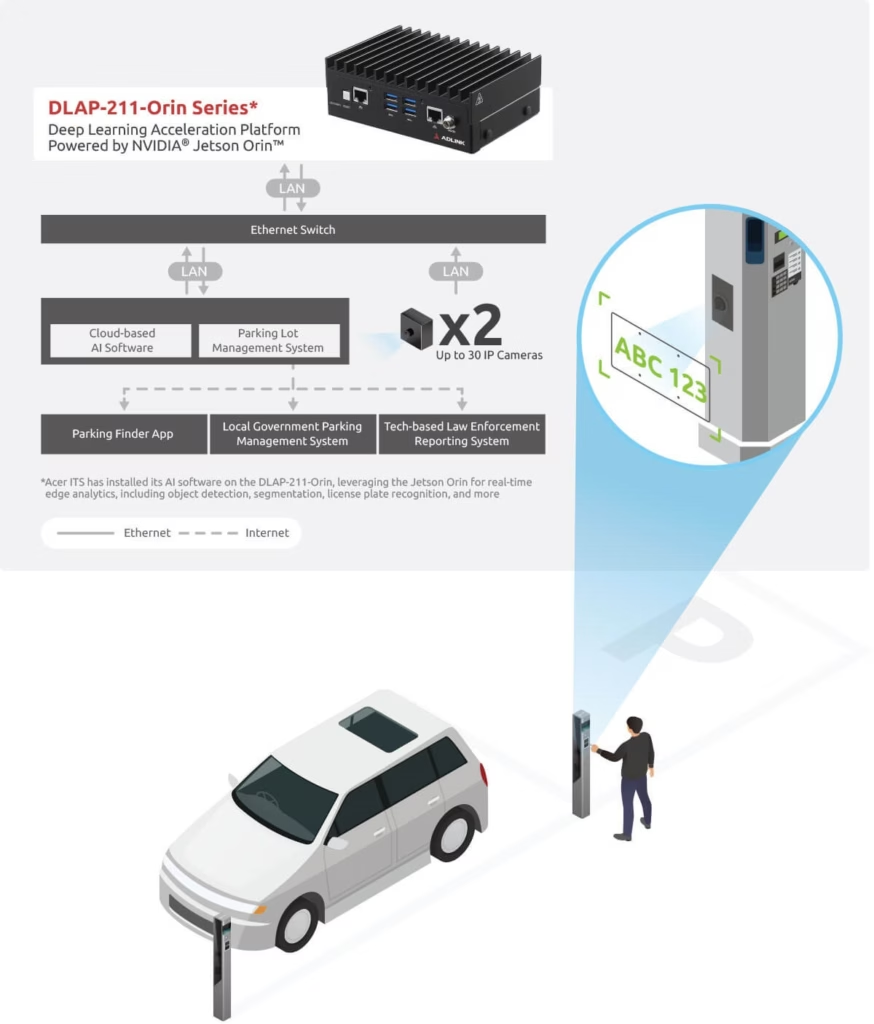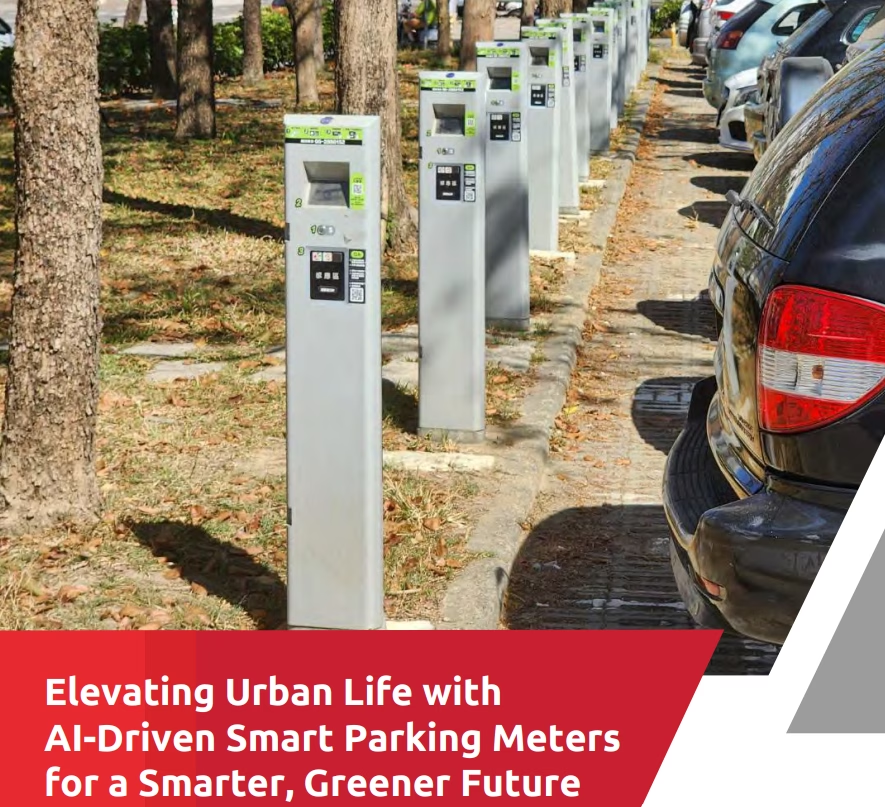I want to share with you this application note undertaken by our supplier ADLINK and one of their partners Acer ITS with the application of AI Powered Smart Parking Meters which are set to revolutionise how parking services are managed.
Elevating Urban Mobility with AI-Powered Smart Parking Meters
As cities continue to expand, urban planners face increasing challenges in traffic management, sustainability, and efficient public space utilisation. In response to these growing concerns, smart city initiatives are reshaping how essential services, such as parking, are managed.
ADLINK, in collaboration with Acer ITS, has introduced the second-generation smart parking meters, powered by ADLINK’s DLAP-211-Orin edge AI platform. These AI-driven systems boast an impressive 99.96% recognition accuracy, significantly enhancing parking management by automating processes, reducing congestion, and lowering carbon emissions.
The Evolution of Smart Parking Solutions
According to the case study, the journey toward intelligent parking began in 2019. With the deployment of first-generation smart meters in Tainan City, Taiwan. These meters successfully replaced manual attendants with automated license plate recognition. By 2022, the second-generation meters were introduced, offering advanced AI-powered capabilities that revolutionised urban parking efficiency.
Key Challenges in Developing Smart Parking Meters
Deploying smart parking meters presents several hurdles that must be addressed to ensure long-term reliability and efficiency:
1. Climate Durability
Taiwan’s extreme weather conditions pose a challenge, with outdoor temperatures reaching 40°C and internal meter temperatures soaring up to 70°C. Smart meters must incorporate wide operating temperature components to function reliably under these conditions.
2. AI Computing Power
A 24/7 smart parking system requires robust AI processing capabilities for real-time license plate recognition, object detection, automated ticketing, and diverse payment methods. Reliability under fluctuating weather conditions is critical to maintaining high accuracy.
3. Environmental Integration
Smart parking meters must blend seamlessly into urban infrastructure without disrupting pedestrian movement or vehicle flow.
4. Data Privacy and Security
As smart meters integrate real-time data transmission and electronic payments, safeguarding user data and complying with stringent privacy laws is paramount.
5. Maintenance and Longevity
Vandalism, dust, and extreme weather can degrade the meters over time. Designing a durable, low-maintenance system ensures cost efficiency and long-term usability.
6. Scalability and Future-Proofing
As urban mobility evolves, smart parking meters must be easily upgradeable to support features like EV charging and digital signage.
7. User Adoption and Experience
For successful implementation, the system must offer a user-friendly interface that encourages adoption by residents accustomed to traditional parking methods.
How ADLINK and Acer ITS Overcame These Challenges
By leveraging ADLINK’s DLAP-211-Orin Series, powered by NVIDIA® Jetson Orin™, Acer ITS was able to develop a next-generation smart parking system that meets these demanding requirements.

Key Features of ADLINK’s DLAP-211-Orin Platform
- High AI Computing Power: Delivers up to 100 TOPS of AI processing power, enabling real-time license plate recognition and advanced analytics.
- Extreme Temperature Resistance: Operates within a range of -20°C to 70°C, ensuring reliability in extreme conditions.
- Compact and Fanless Design: Ensures dust and moisture resistance, reducing maintenance costs.
- Seamless Connectivity and Scalability: Supports multiple I/O interfaces and modular expansion for future upgrades.
The Impact of Smart Parking Meters
The adoption of AI-driven parking meters has already yielded substantial benefits:
Reduced Traffic Congestion: Real-time vacancy updates optimise space utilisation.
Lower Carbon Emissions: Improved traffic flow reduces fuel consumption and emissions.
Paperless Ticketing: Digital transactions minimise waste.
Enhanced Urban Planning: Data-driven insights help optimise city infrastructure.
Scaling for the Future
Currently, 2,000 smart parking spaces have been deployed in Tainan, with an additional 600 planned for Taipei. Future advancements include:
🚗 Multifunctional Smart Poles with EV charging capabilities.
🔍 Enhanced AI Algorithms for improved efficiency.
💰 Adaptive Pricing Models for optimal parking space usage.
📊 Data-Driven Urban Planning using visual analytics platforms.
Paving the Way for Smarter, Greener Cities
By harnessing AI and IoT, ADLINK and Acer ITS are setting new standards for urban mobility and sustainability. Transforming the way cities manage parking. Providing a seamless, secure, and eco-friendly solution that aligns with the vision of smart cities worldwide.
Want to know more about this case study, contact us.
